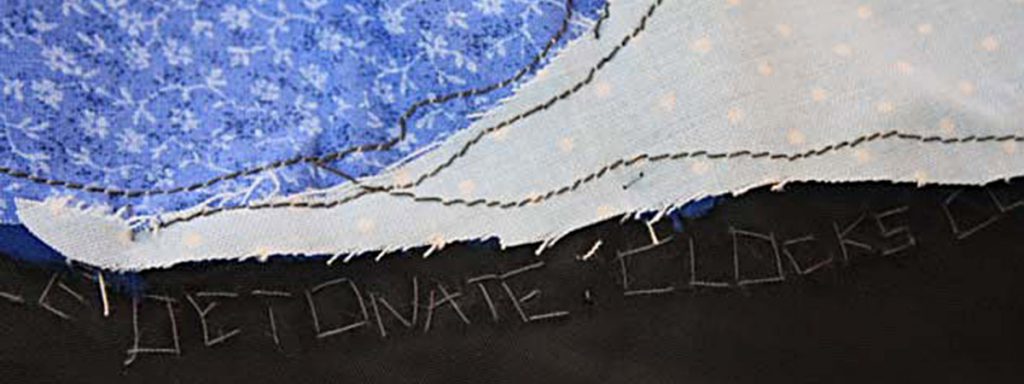During the 2010–2011 academic year Mica Schlosser ’13 approached the museum with a request that caught my attention. She was hoping to study a photograph in our collection—a gelatin silver print of an Atomic Bomb Explosion by Harold Edgerton from 1952—and to sew a quilt inspired by its imagery.
Right on.
I was fascinated by this unique and engaging concept, and I was more than a little impatient to witness the execution (pardon the pun). I sent Mica a steady train of emails to inquire about its progress, and I was anxious for the opportunity to share the results with our audience.
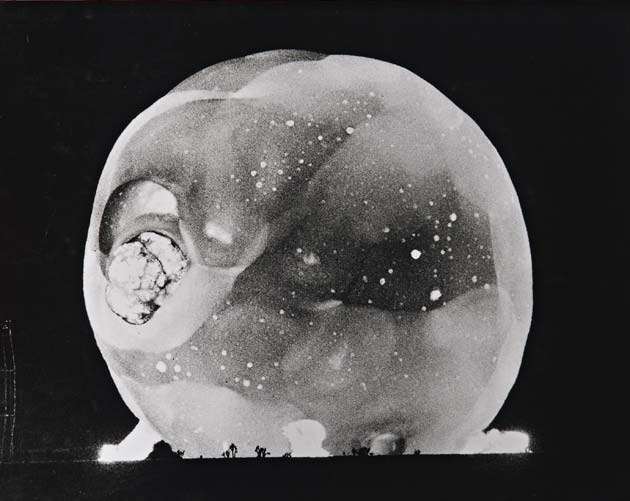
The quilt, which Mica completed in the spring and titled Four Minute Warning, has now been photographed and I can, at long last, share it with you. Here’s what Mica had to say about the spark for this project:
“My family has a tradition of creating a collaborative patchwork quilt each time a new family member is born. As a result, I have always been interested in trying to quilt. I wanted my subject to be American, but atypical for quilting. I came across a government document that explained the various stages of dropping an atomic bomb, and was struck by the stitch-like quality of the images. My Professor, Eric Nelson, showed me a photograph taken by Harold Edgerton in 1952 of an atomic bomb right before it mushroomed. I thought that this abstract image would be interesting to translate into patchwork. The Middlebury College Museum of Art owns the image, and generously permitted me to draw the plan for my quilt directly from the actual photograph. The border of the quilt is embroidered with the technical stages of dropping a bomb, taken directly from the first document I came across. I was struck by how beautiful the Edgerton photograph was, despite depicting the icon of mass death. My quilt is very abstract, and I would not expect anyone to recognize the image. But my intention was to further illustrate a contrast between the cohesion required in a quilt and the all-encompassing destruction of a nuclear bomb.”
Without further ado, here are the results, including a number of close ups as well as an image of a document showing the drop sequence for the bomb, which gives rise to the textual stitching in the quilt.

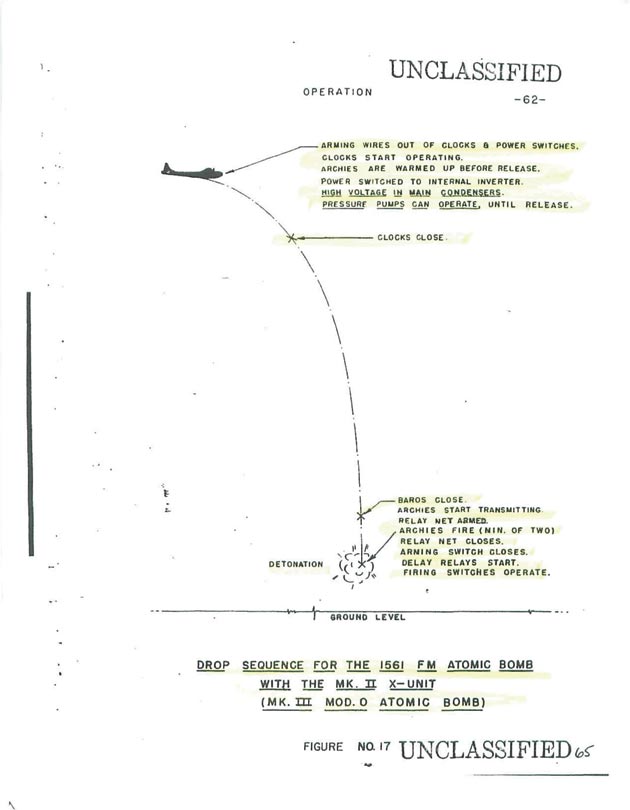
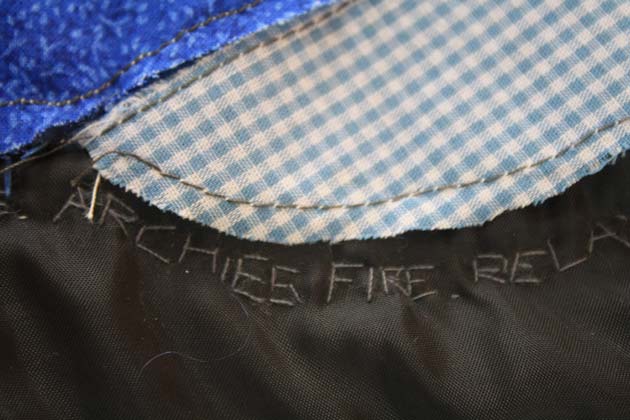
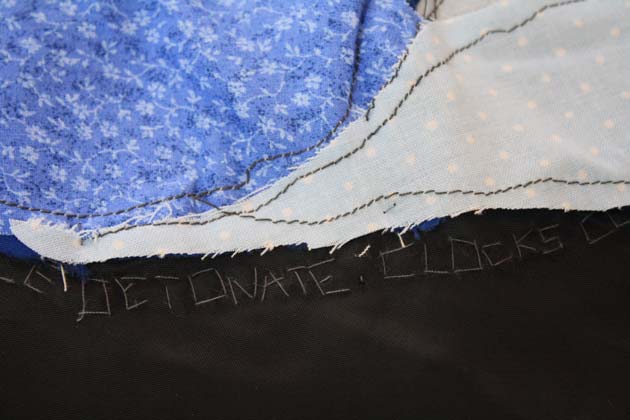
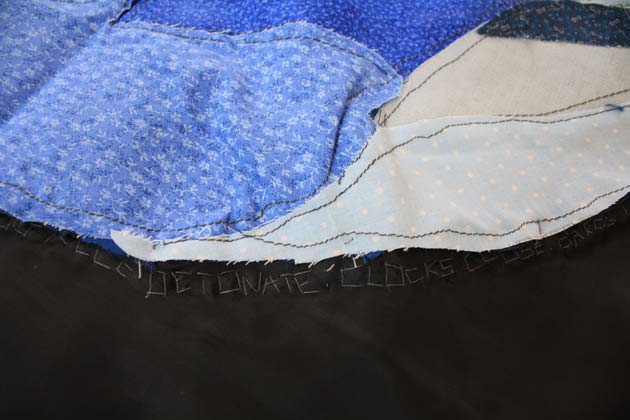
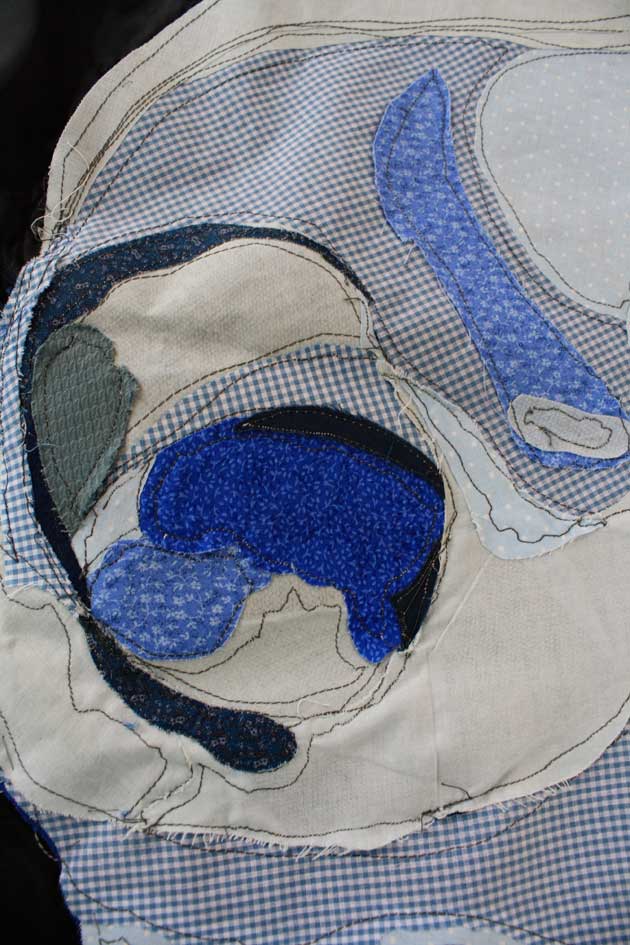
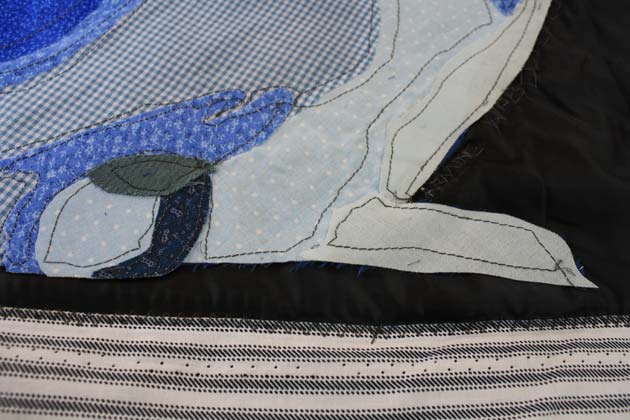
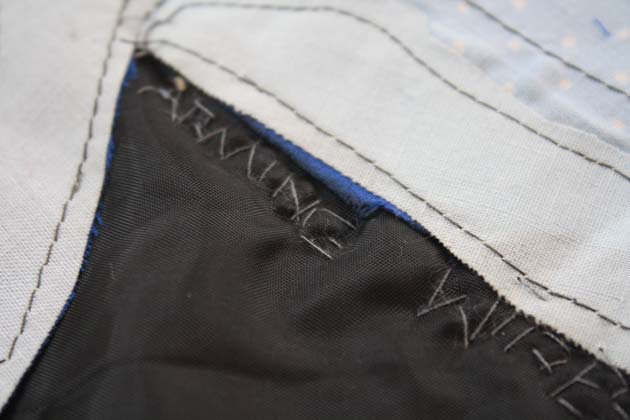


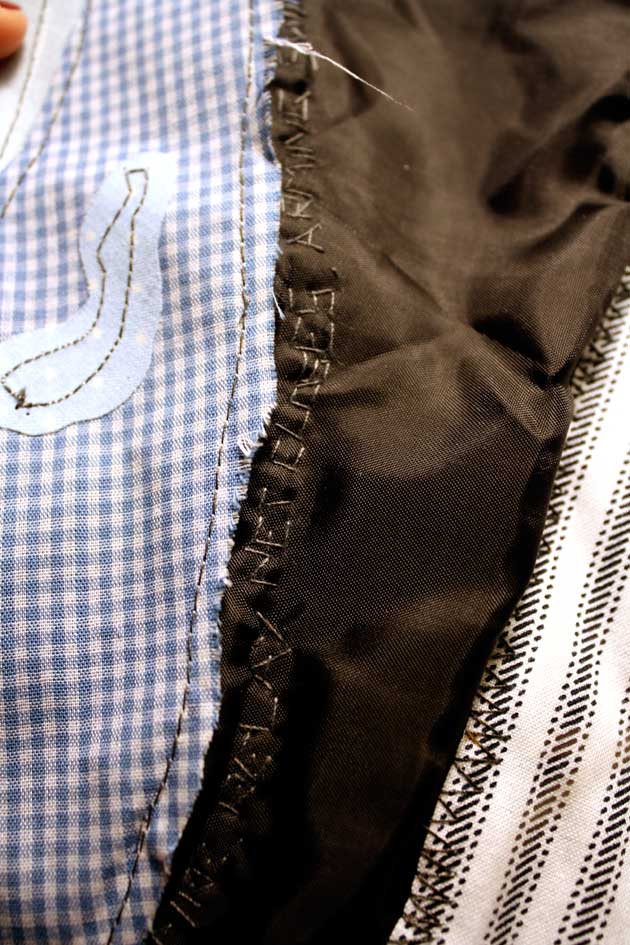
This, to my mind, is exactly the sort of creative interaction that an academic museum collection is intended to engender. I hope you agree, and if you do, feel free to light up the comments.
